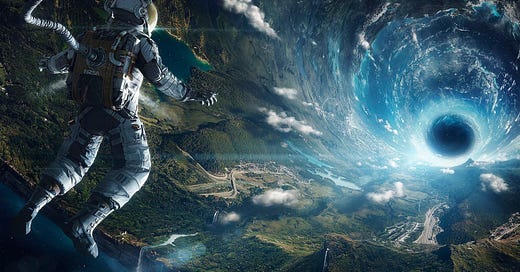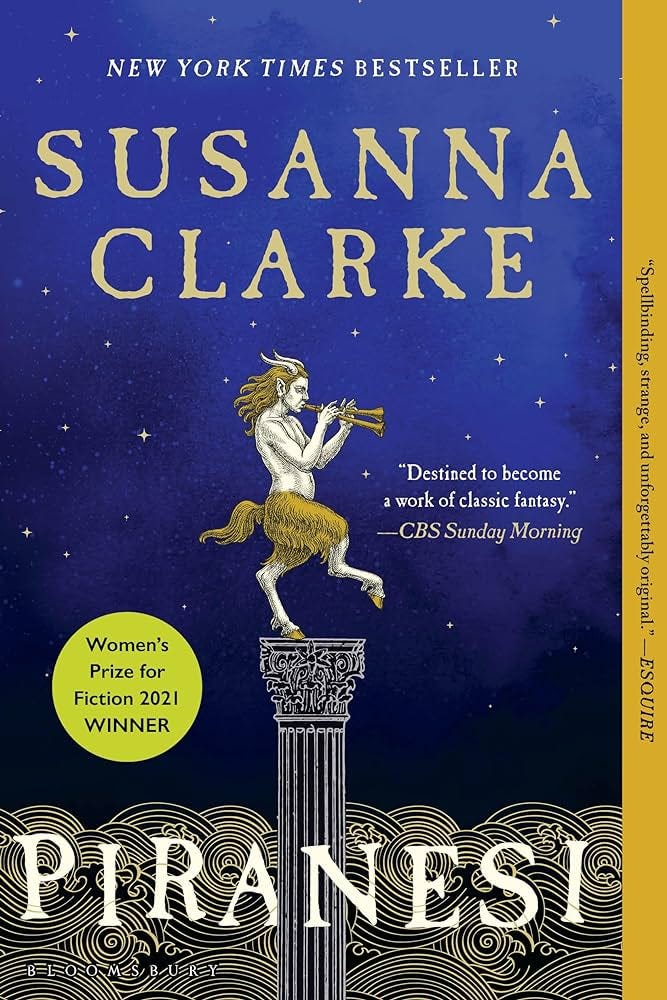It's About Time!
Where we discuss time, time travel, and Sea of Tranquility by Emily St. John Mandel
We, as humans, are obsessed with time. Alarms, schedules, appointments, reservations - all dictate how we live. We are constantly trying to diminish the time it takes for certain tasks so we can make time for other, more important things. At the same time, we love to reminisce about memories just as much as we regret some past choices. Sometimes we can move on from these regrets, but other times we wish we could change the past or even look into our future. And herein lies our love for time-travel fiction.
You are reading The Novel Tea Newsletter, companion to The Novel Tea Podcast, where you’ll find book reviews, thematic literary analysis, and cultural commentary to help you thoughtfully engage with the world.
New posts come out every Tuesday. If you enjoy reading our work, please consider subscribing and sharing the newsletter with others.
Time-travel stories create possibilities that give us answers to unanswerable questions and help build stories in unique and creative ways. One of the earliest and most popular examples of visiting the past or future is The Time Machine by H.G. Wells, written in 1895. Since then, there have been many examples of stories that include a device that can move humans through time, such as The Terminator (1984) or Back to the Future (1985). Another example of time travel is the idea of wormholes and time portals, as we see in Planet of the Apes (1968), which gave way to some of my favorite movies of all time like Interstellar (2014) and The Butterfly Effect (2004).
However, in 2024, time travel in literature and media isn’t a new concept. At this point, terms like the godfather or bootstrap paradox are common knowledge, so why are we still interested in stories based on time travel? What’s new?
Recently, I’ve noticed a trend in Time becoming the villain of a story. It takes the form of an authoritative figure or group that takes control of time itself. As we see in Sea of Tranquility by Emily St. John Mandel, there is a Time Institute where they create rules, laws, and punishments concerning time. As we get hints of the Time Institute being built in Olive’s timeline in 2203, by the time we get to Gaspery’s story in 2401, the institute is a full-fledged working organization.
This concept has been seen in Loki, where the Time Variance Authority is fighting against Loki to prevent alternate timelines from branching out to protect the main timeline. Similarly, in What If?, the most powerful character, The Watcher, is the one who oversees and takes care of maintaining the timelines of the Marvel Universe. The Umbrella Academy has the Temps Commission, the Temporal Bureau in Predestination, etc.
This trend goes back to the idea that humans are obsessed with time. Not only do we want to travel through time, but we also want to control it entirely. However, if we live in an imagined world where time is controlled, do we have free will? Would we then be living in a version of a simulation? And if we were living in a simulation, what should we do about it?
Sea of Tranquility attempts to answer these questions. We discuss these concepts and much more in our episode linked below:
If you’re curious to explore the nitty gritty of time travel, you can also check out this video that explains the different types of time travel (and the problems that occur in each one):
— Neha
Up Next
Next on the podcast, we’ll be discussing Piranesi by Susanna Clarke. This book needs almost no introduction — since it was published, every type of reader, from fantasy die-hards to literary lovers, has picked up and loved it. The episode will be out on June 19.








I love thinking about time and time travel. North Woods was also one that got deep into the idea of time! Sea of Tranquility is the best